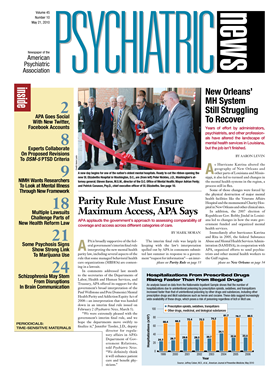Can you “catch” depression?
Very possibly, an intriguing new study suggests.
The study was conducted by Niels Rosenquist, M.D., Ph.D., a research fellow in health care policy at Harvard Medical School; Nicholas Christakis, M.D., Ph.D., a professor of health care policy at Harvard Medical School; and James Fowler, Ph.D., an associate professor of political science at the University of California, San Diego. The results were published online March 16 in Molecular Psychiatry.
The Framingham Heart Study, which was established in Framingham, Mass., in 1948 to identify risk factors for cardiovascular disease, has built up a large, densely socially interconnected group of participants over the years. It includes the original cohort, the offspring cohort, the grandchildren cohort, and an “omni ohort,” enrolled in 1994 to increase the ethnic diversity of participants. Altogether, the Framingham study encompasses 12,067 participants.
Moreover, a vast amount of health information about the participants has been gathered, including whether they were depressed at certain points. Depression was measured with the Center for Epidemiologic Studies Depression Scale (CES-D), an instrument with good reliability and validity. Also, participants were asked to identify their families, friends, and neighbors, many of whom also participate in the Framingham study. Rosenquist and his colleagues used this information to determine whether subjects' depression scores at a given point correlated with the depression scores of their friends and neighbors at the same point.
The researchers found that subjects were 93 percent more likely to be depressed if a person they were directly connected to was depressed. The size of the effect for people at two degrees of separation (a friend of a friend) was 43 percent, and for people at three degrees of separation (a friend of a friend of a friend), it was 37 percent. At four degrees of separation, the effect disappeared.
“These results support the hypothesis that depressive symptoms as defined by CES-D scores can be observed to travel along social networks,” the researchers concluded. “Female friends appear to be especially influential in the spread of depression from one person to another.”
The researchers have also used the Framingham cohort to determine that happiness, loneliness, smoking habits, and obesity can spread through social networks. They reported in the July 26, 2007, New England Journal of Medicine, for example, that people's chances of becoming obese increased by 57 percent if they had a friend who became obese in a given interval, by 40 percent if they had a sibling who became obese in a given interval, and by 37 percent if they had a spouse who became obese in a given interval. In a paper in press with the Annals of Internal Medicine, the researchers are reporting that alcohol consumption can spread through social networks as well.
So, if social networks can promote negative health states, they might also be exploited to promote positive ones, Rosenquist and his coworkers indicated in their paper. “An example of this, known as ‘seeding,’ seeks to use well-connected individuals to spread information and is the subject of a number of ongoing research projects,” they wrote.
The study was funded by the National Institute on Aging and the Robert Wood Johnson Foundation.

